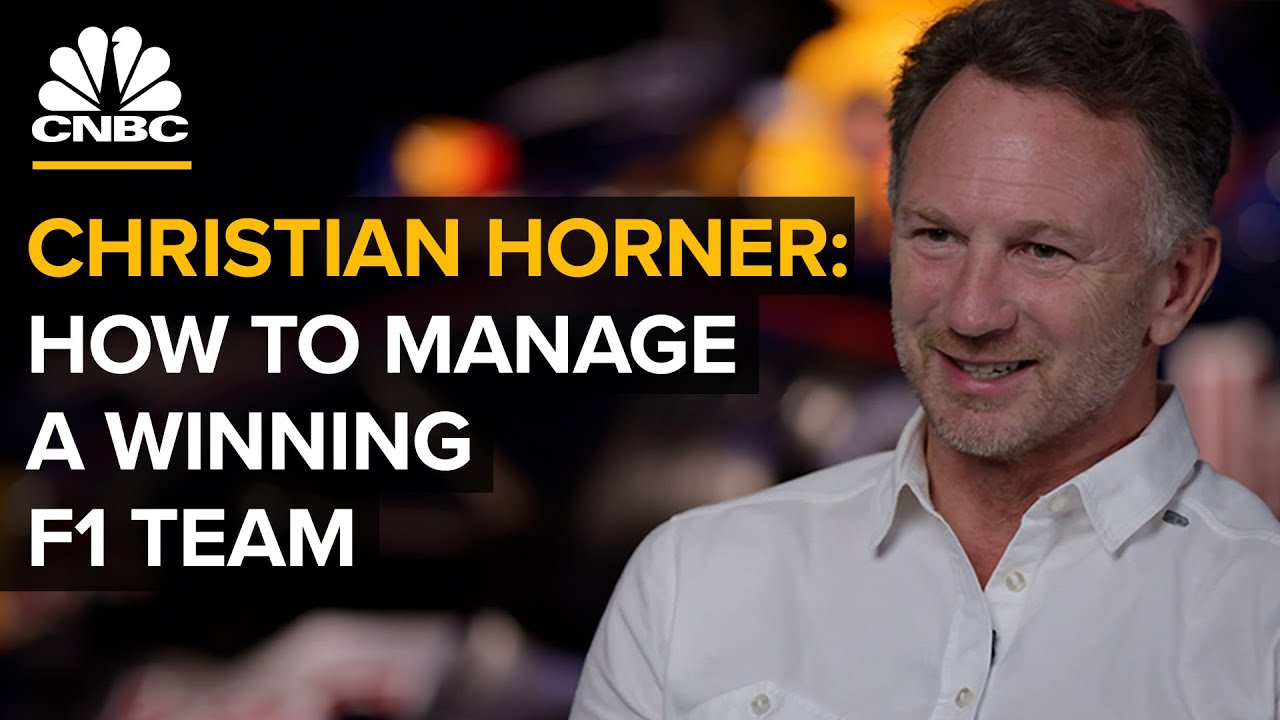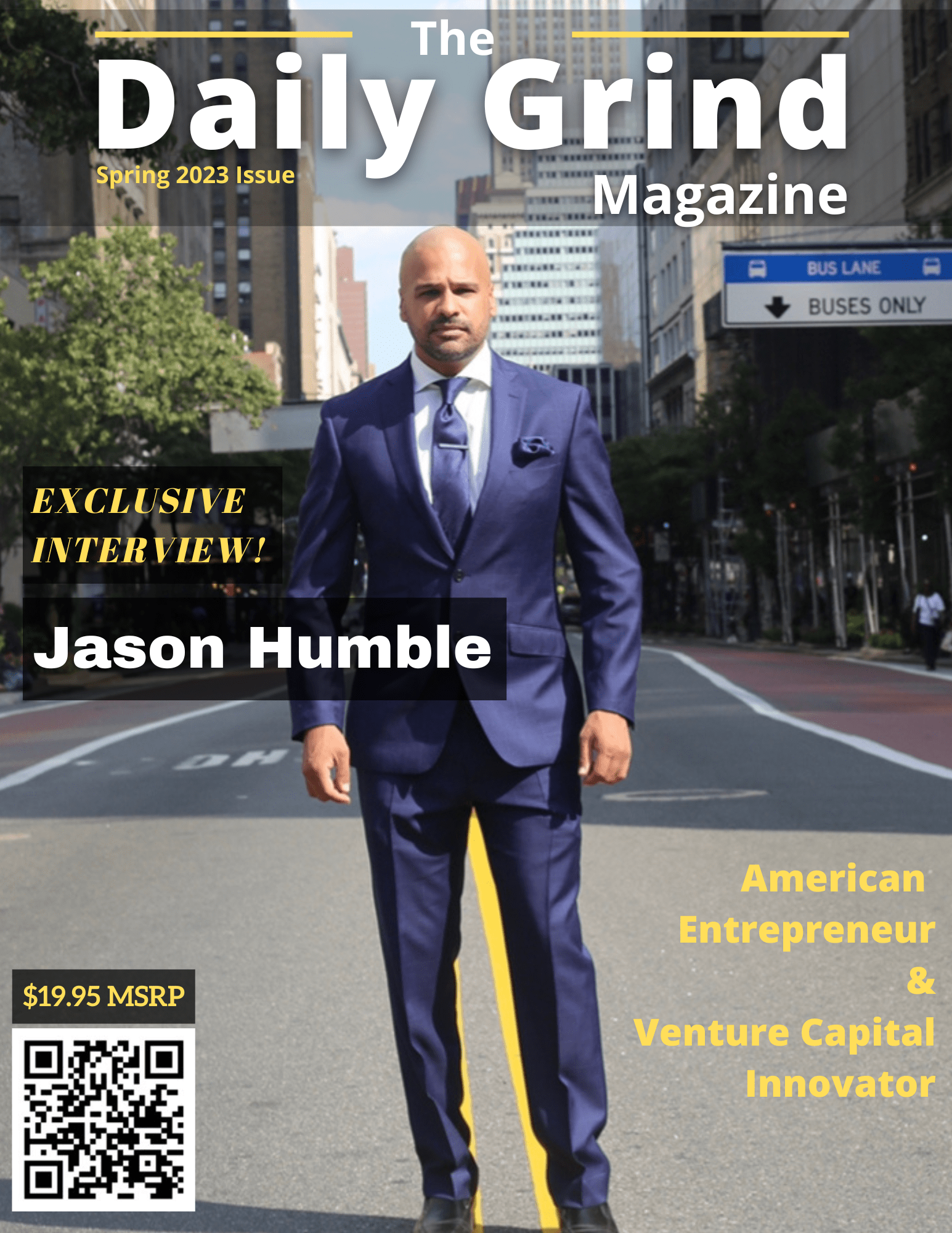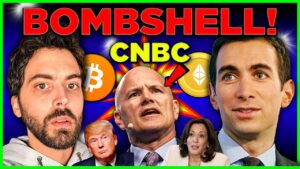Hi Christian, thank you
for making the time today Here at Red Bull. Pleasure. Great to have
you here. So we're getting into race
weekend at Silverstone. What does that look like
for you? What are the different
responsibilities that you Have right now? Well, it's always a busy
build up to the British Grand Prix. So as our
second home race within a Two week period, so off
straight off the back of Austria last Sunday. There's a lot of
sponsors, a lot of, you Know, friends of the
team, a huge amount of Interest. A lot of our
employees will be up at Silverstone over the
weekend as well. So, you know, it's always
a very busy weekend. You are team principal and
CEO. People know you manage
the team. What does it actually
entail? Well, it entails, you
know, a huge amounts of Variance. So I always
liken it to for 23 race Weekends of the year, I'm
the team principal of a High-performing sports
team. And for the other 52 Weeks of the year, from
Monday to Friday, I'm the CEO of a high-tech
technology business, so It's wearing the
different caps for the Different roles. How much of your time is
spent thinking about the Car, talking to the
driver, and how much is Spent on dealing with the
sponsors and the business And the shareholders? I would say it varies from
from day to day, from Month to month. I mean,
obviously the majority of My time is consumed in
running the business and
The drivers are a key
part of a Grand Prix Weekend. But of course,
you know, my main Interaction with them is
during a Grand Prix Weekend. And so, so yeah,
it's always that's the Great thing about this
job is, you know, every Day is a little bit
different. How do you deal with the
schedule of the races? I mean, you're basically
on the move February Through December, more
than 20 races. How do you physically
deal with that? It's a brutal schedule.
And I think again, it's a Marathon, not a sprint. So you have to pace
yourself. And I think the Weekends we do get off
and at home you have to Take a bit of time out. I have a young family, so
to try and relax and Switch off and forget
about Formula 1 for at Least half an hour. So and I think that's
hugely important. Otherwise it's impossible
to sustain the level of Demand that the business
can place on you. When did you start getting
into racing and F1? You're the longest
serving team principal, Right? Yes, I have that title
now, apparently. So look, I started my
career out as a driver. I was I started at the
age of 11, racing go karts And then progressed
through to the point that I did some testing as a
as a test driver in Formula 1. But then I
retired from driving in in 1998 and focused on
establishing my own team At the at that time, and
moved into the role of Managing people and
working with people. And then Red Bull
approached me when they
Acquired what was the
Jaguar Formula 1 team to Come and come and be the
first team principal of Red Bull Racing. And that brings us to
today. Yeah. How did you guys
get to be number one? I think by having the
right spirit, the right Culture, the right people
around us within the team And attracting the best
people to come and work Here and and having great
facilities, great drivers. And it's a team sport. It's the biggest team
sport in the world where You've got to get
everybody, you know, Dancing in time. Obviously produce cars
like we have and operate Cars at all these Grand
Prix's. Let's talk about the
business for a while. So how does number one
impact the business of the Red Bull Racing team? Well, I think there's an
old adage of of, you know, Win on Sunday and sell on
Monday. So you know, Red Bull,
what we do for the Red Bull brand for the for
the energy drink in Advertising the product
globally for 23 race Weekends a year. You know, we're the
biggest marketing impact That the beverage company
has. So that's, you know, the
main reason that Red Bull Are involved in in
Formula 1. And of course then we
have many partners, a lot Of American partners now. So people, you know, like
Oracle as our as our title Partner, you know, other
companies involved like ExxonMobil or CashApp or,
you know, so many, so many Different brands that we
have, you know, that we're
That we're working with. Win on Sunday, sell on
Monday. So there's a correlation
between you winning and Sales of the energy
drink. Absolutely. They see it. They can measure it. And
I think that particularly Again the drivers in
their home territories, You know, Mexican sales
have increased Dramatically with Sergio
being with the team, Max Verstappen, the whole
Benelux area. It's incredible the
amount of consumption of Red Bull that is that is
happening. And, you know, we see
that that growth globally Because it is
interesting. It's not like Mercedes or
McLaren where they're Selling the cars. Yeah. Why does Red Bull,
an energy drink maker, Need a Formula 1 team? Well because I think, you
know, the shareholders There have always been
passionate about racing And Formula 1, and they
saw it as the perfect Platform to market their
brand. And it's the most viewed
sport in the world outside Of the Olympic Games and
the football World Cup. But of course, they only
happen every four years. Formula 1 is every two
weeks. So the global reach that
we're achieving, the Followers that we have. Is the best possible way,
not just for Red Bull, but For any partner
associated with us to Promote their brand. Who are the shareholders? Who are the owners? Well, the shareholders are
split between the Dudieva
Family, the Thai family
and the Mateschitz, Mark Mateschitz. So we have
two shareholders and They're both hugely
supportive of all our Activities. How much involvement do
they have versus you Controlling the team? Obviously, I have to
report through the group Into the shareholders. So
but they ultimately it's Their choice. But I have to the
responsibility of running The business and the
accountability for that. Is it a profitable
investment for them? It depends how you view it
in terms of the Recognition for the brand
globally, what that would Cost to advertise?
Absolutely. It's a huge Success in the amount
that it's promoting the Red Bull brand. And I
think as as the Sponsorship and
partnerships and the Income improves and cost
caps take effect on both Chassis and engine in
Formula 1, it becomes a Much more sustainable
business. And we're seeing the
intrinsic value of Formula 1 teams just increase
dramatically. So let's talk about the
revenue side. It comes through
sponsorships mainly. Well you've got a split of
revenues. You have the sponsorship
that you raise as an Individual team with the
the partners that you work With. And then of course,
the money coming into the Sport through Liberty
Media, how that's Distributed through the
prize fund represents Significant numbers. With the amount of money
that's obviously now Flowing into the sport.
How has that changed over
the years? It's increased
significantly with the Liberty ownership. I
mean, Bernie Ecclestone Did a great job in
developing and building The business. And I think
Liberty have now taken it To that next level as
well. And and revenues have
never been better. So how much is it the cost
cap in terms of Profitability and and
making the teams more Efficient? I think the cost cap has
had an effect because it's Driven efficiency into
the business, which in Turn, as the popularity
has increased, revenues Have increased
significantly. And so each Team is in a very healthy
position. Historically, there would
have been always been two Teams that were
struggling to hang on. Now we have ten very,
very healthy franchises in Formula 1. Does it limit you as to
what you can do further on R&D and innovation? You just have to be choosy
in where you choose to Spend your investment. So I think it makes us be
selective, but we still Want to innovate. We
still want to be pushing The boundaries. How much of what comes in
goes toward development of The cars and figuring out
design to make them Faster? 75%. What about the other 25%? Well, the other 25%. You've got to run the
business and pay drivers And and people and so on.
But there's a huge amount
of investment that goes Into technology and
designing and producing These cars. Many thank you. You have
the best car. I mean, you're more than
two seconds often ahead of The the second place
finish. How did that happen? I think that's a
culmination. There's no Silver bullets. And I
think it's every Department having to be
delivering their part, Whether that's on the
chassis, on the aero, on The mechanical design, on
the operational side, on The engine side, on the
driver's side. So it's a culmination of
all those elements needing To come together to
deliver. And I think that as I
say, there's no silver Bullets in this sport.
It's about hard work, Teamwork and working
collectively. What about the Oracle
partnership? When did that happen? How did that come
together? Well, that came together
in time for the '21 Season. And we've been
using their technology and The cloud technology and
as well as some of their CRM and technology, we're
using some of their tools To help us make faster
decisions on the pit wall As well. With the amount
of simulations that we can Run in within a Grand
Prix. So that started in '21,
and it was so successful That it grew to a title
partnership in 2022 that We became Oracle Red Bull
Racing. What about the other
sponsors? Who are they and What do they bring? We have so many partners.
We have 52 different
partners across across the Team now, across all
different categories. You know, if you go from
Tag Heuer, the the classic Watch brand or ExxonMobil
that are producing all of Our fuels and, and
lubricants, we have, you Know, companies like
CashApp, we have companies Like Bybit. So we have so many
different brands, you Know, that we're working
with that are all making Great use of Formula One. What about the prize
money? How does that work, now
that you're at the top? How much more do you get
than the other teams? Well, this prize money is
essentially split into Three columns. So you get
one column for Participation. You get
one column for where you Finish in the
constructors Championship. Then there is a third
column that is, all has a Historical content to it. So for example, Ferrari
benefit the most from that Column because they're
the longest standing team. So it's it's a
complicated matrix. But that's how
fundamentally it flows Into the sport. What are your thoughts on
on some of the rules and Regulations? There have
been improvements in Safety, big regulations
on 2022 and now ones we're Looking ahead on 2026. Yeah. Look, I think the
FIA do a great job on Safety. If you look how
safety is improved with Formula 1 cars over the
years has been phenomenal. To think that Romain
Grosjean could survive an Accident like he did in
Bahrain is is Unimaginable. So you have
to give full credit to the
FIA on the grounds of
safety. And of course,
occasionally we get big Shake, a big shake up in
regulations where like we Had for 2022, when we're
getting another one in 2026, I think encompasses
both power unit and engine That keeps everybody on
their toes. This relates to
sustainability and 50/50. Electric. Yeah. So what's the problem
with that? Well we're running on
fully sustainable fuel. And I think one of the
challenges is the the Amount of recovery that
we can generate to fill The battery at certain
circuits as limitations Too. So and how the
engines will operate. So without there being
too much reliance on the Chassis with active aero
to compensate for the for The lack of recovery on
the engine. So so we've just got to
make sure we got that Ratio right, because at
the end of the day, the Product has to be
entertaining. It has to be wheel to
wheel racing between the Best drivers in the
world. And we mustn't Overlook that in the
pursuit of, you know, Absolute technology. I had a chance to be on
the grid walk, which was Pretty amazing. What is that like for
you? What are you doing at
that point? Well, there's obviously
there's a huge amount of Activity going on in the
build up and you've got Media there, you've got
got sponsors and partners There. But the most
important thing for me is, Are the cars okay? Are the mechanics happy?
Are the drivers where
they should be? Are they, are they, in
the zone? Yeah. What's going through
your mind? You're thinking, you're
trying to imagine Scenarios that how the
start could turn out and, You know, the what-ifs. But I have sort of a
ritual that I will go Through, or a sequence
of – Which is what? Events from the point
that I shake the driver's Hand from the right hand
side. I walk back to the
garage. I watch the start Of the race from the
garage. I just want to make sure
that the mechanics are, You know, they're all
where they need to be, That they're all looking
calm and everything is Under control. And then
once the race is started, I walk across to the pit
wall, plug in and get Fully involved in the
strategy. Are you superstitious? Yeah. Very? Oh, very enough. Is that why you shake on
the right side? Yeah. Always. You know, and I think
that it's just a sequence Of events that you go
through that helps put Yourself in the mindset
for the Grand Prix. It gets rid of all the
distractions. You've obviously become a
celebrity. Is it because of Drive to
Survive? I think Drive to Survive
has played a big role in That. I mean, in the
motorsport world we were All reasonably well
known. But Drive to Survive
takes it to a whole new
Dimension beyond the
sport. And I think that's been a
game changer. How have you seen the the
popularity of F1 change Over the years? I think it's been massive,
the shift over the last Five years, but
particularly since the Pandemic, I think people
sitting at home watching Box sets and content,
that's really where Drive To Survive really took
off. And I think that the
success of that's Generating in the U.S. Is amazing. So really the last, the
last few years. You've always seen clearly
you were one of the first, You were the first to
participate in Drive to Survive. Why is it so
important to have now the Cameras around and to
bring folks in? The reason I was very
supportive of it because I Thought it, there's so
much more to Formula 1 Than just the race
itself, the personalities, The characters, the
politics, the competition. And so I think giving,
just lifting the lid Slightly on that and
seeing not even 10% of What goes on is very,
very compelling. And you get to see some
of the characters and some Of the challenges that
teams up and down the grid Face. You mentioned the U.S. And we've seen the
popularity grow. Why do you think it
hasn't caught on over the Years, in years past? I think the U.S. has been
very U.S.-centric in its Sports. And you had
NASCAR and IndyCar and so On, and I think Formula 1
has never really engaged
The U.S. Mainstream. And I think
that's now starting to Happen. And I think it's
only a matter of time Before we get a
competitive U.S. Driver. And I think
that'll be another major Step forward as well. Do
you think that needs to Happen? I think that needs to
happen. We've seen the Effect just in Mexico
with Checo or the Netherlands with Max. And you see that national
support that there is for Home talent. Are you looking to add a
U.S. Driver? We're just looking for
talent. So if they happen To be from the U.S. then
that's great. What do you see as the
potential in the U.S. Market? Massive, massive. I think we're just
scratching the surface of The potential of the U.S. And I think that, you
know, more races and races Like Las Vegas and Miami
certainly help. But I think there's a lot
more we can do. Can you do more than three
races in the U.S.? Potentially. Potentially. You could,
but it's making sure They're the right races. What does that mean? Well, by going to Vegas is
a phenomenal venue to be Racing 10:00 Saturday
night down the strip. It's got to be that kind
of draw. It can't just be a run of
the mill, you know, race That doesn't spark that
appeal.
When you think about the
growth levers that F1 can Can pull, I mean they're
already what 24 races. Can you afford more
races, more teams? No, I think we need to be
selective. Maybe we need To revisit some of the
races that we already Attend to be selective of
where do we want to be. In other words, figure out
new places. Yeah for sure. We have two races in
Italy, for example, versus Another U.S. race. You
know, there's those kind Of questions for the
promoter to consider. Based on what? The
audience size? Based on its audience and
what it brings to the Sport. I mean, so many
new markets as well that Want to come in. It's not
just the U.S. What about the limiting
factors? You don't see a Lot of women. First of
all, you don't see any Women drivers and you
don't see a lot of women On the teams. Is that a problem? It's changing. It's a lot
of change in the last five Years as well, that we're
seeing more women Interested in the sport.
We're seeing more women Taking roles. Certainly within our
team. We're seeing a huge Influx of of talent and
female talent. And I think on the
driving side, you know, There are great
initiatives to get women Driving. But I think it
goes to the grassroots. We've got to get more
girls involved at six, Seven, eight years of age
in karting and make it Accessible and inclusive. And that way we're just
seeing more, more women Drivers coming through
the sport.
So that's important to
you? I think it's hugely Important. What about the
perception that it's an Elite sport? It's hard to
get in as a racer. You have to have a lot of
money and it's hard to get Into the races. Well, all our drivers
across the two teams are There purely on talent,
and I think 95% of the Grid now is, they're
purely on talent. So it is a tough sport. But you know there's only
20 seats. So and you're seeing more
and more investment going Into young talent. That's
what we're doing investing In I think we have 18
juniors on the program at The moment. So we're
investing in youth and Young talent. So what is the barrier to
entry to getting into F1? I think it's just it
depends in what area you Want to be involved in. I
think that we're seeing More and more and we're
investing more and more in Graduates and
apprenticeships and Student placements and so
on. And I think that, you
know, there's there's ten Grand Prix teams out
there that are all Employing close to seven,
800 people. So, you know, there is
always going to be Opportunity for talent. And I think for drivers,
we're seeing more getting Involved at the
grassroots level. And I think that's where
we're looking to support And get more, more
closely aligned to. Should there be more than
ten teams? I think that's a difficult
question because it Depends on so many
factions of, you know, Operation. Is it
possible, can you fit in a
10th team, 11th team, for
example, in Monte Carlo? Where would they where
would they fit? And then you've got the
bigger question of who Pays who you do. You guys get to loot it?
Who gets. Diluted? I mean, I don't
think the existing ten are Going to be happy to be
diluted. So we'll say Liberty should pay if
they want an 11th team. I'm sure the commercial
rights holder is going to Say, well, I'm not
paying. So that's the issue. And until that can be
solved or resolved. I can't see the route to
an 11th team. You're moving into making
your own engine? Correct. Why did you make
that decision? Well, we made that
decision because Honda Chose to withdraw during
the pandemic. And we we had a choice
that, you know, either we Go back to being a
customer and we're a very Demanding customer. And in many ways, we felt
we'd sort of outgrown that And haven't been used to
a works type relationship With Honda. It would have
been very hard to go back To being a paying
customer and to being the Second tier supply. So that's why we made the
decision to invest in our Own facility, to take
control of our own future, To be the only team other
than Ferrari that has Engine and chassis all on
one campus, under one Roof. And the synergistic
benefits that that brings, That was the reasoning
and rationale behind that. Can this ever be an
electric vehicle? No. Never. It shouldn't be.
Why? Because I think the
combustion engine still Has life in it. I think
that sustainable fuel is, You know, we aim to be
net carbon zero by 2030. And I think that we can
be at the forefront of Demonstrating that
combustion still has a Future. And what is your future? What is what is the
future for you at Red Bull Racing? For me, I mean, I think
it's to keep this winning Cycle going as long as we
can. I'm very excited about
the new Red Bull Powertrain business that
we run the engines for the First time in 2026. So yeah, I've got enough
on my plate to keep me More than busy. We've all watched the
rivalry between you and Toto. You and Mercedes. Is that real? Yeah, I look, I mean, of
course there's rivalry. I mean, they are
competitors. You know, Toto is a
competitive guy. There has to be respect. I have a great respect
for what he's done and Achieved. But they're
competitors at the end of The day. And they want to
beat us. And we certainly want to
beat them. There's also this idea
that it hurts the business That, you, someone is so
dominant always in Formula 1. Does that hurt the
business? Look there's always going
to be cycles. And we've seen it before
and we'll see it again. And it's only a matter of
time before we get caught. So we just want to try
and make hay while the sun
Shines as much as we can
and and keep this roll of Victories, you know,
maintaining. But at some point
somebody will catch us, The field will converge. And the quickest way to
do that is through Stability of regulation. So you can already see
teams are starting to Nudge ever closer. But hasn't this always
been a problem for Formula 1 where it's 2 or 3 teams
that dominate you, Christian, want the
business to succeed? I know you want to win
every race, but is that Really the best thing? Tell me which major league
or sport does not have 3 Or 4 teams that are. If I look at the
Premiership in the UK, if I look at NFL, for
example, there are, you Know, there's there's
certain teams that are Always there. But the last team gets the
first draft pick. There are more rules to
make it more equitable. Yeah. And I think the cost
cap is going to do that. But it's going to take a
period of time before that Really kicks in. And I think that you're
starting to see the lower Teams are starting to
come up. But you can't dumb down
excellence at the end of The day. And I think that
it's for the other teams To raise their game
rather than us to lower Our game. So success to you is
winning. Success is all about
winning. Christian, thank you so
much for the time. We so appreciate it.





